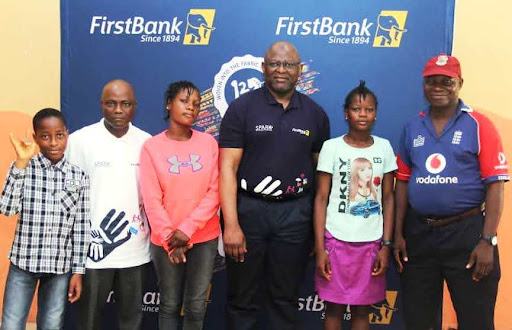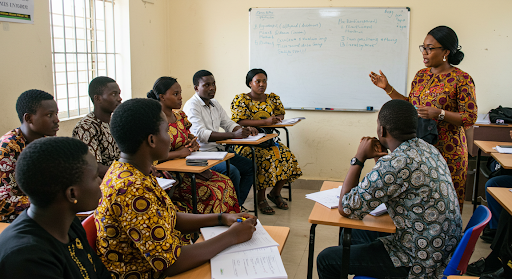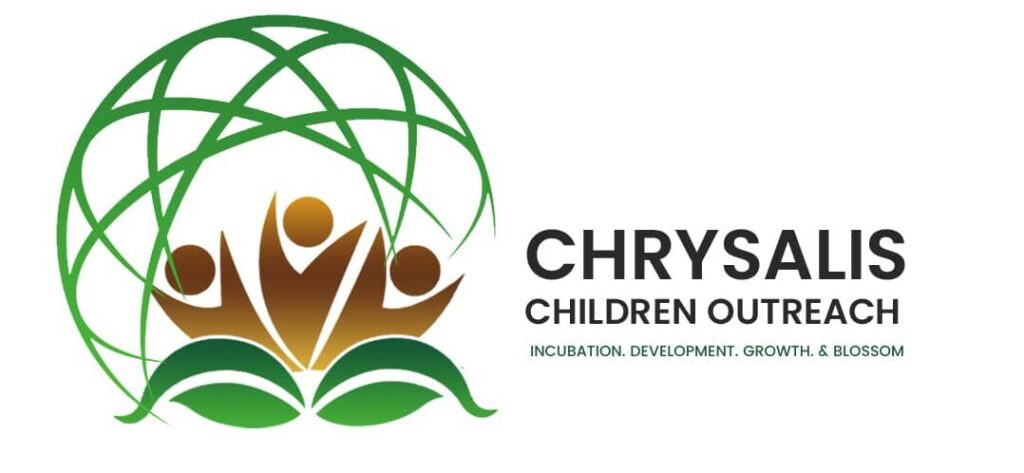CSR for children in Nigeria has become more important than ever before. Companies operating in Nigeria have a unique opportunity to make real changes in children’s lives.
When businesses work together with local groups, they can solve problems that have existed for years.
This partnership approach to CSR for children in Nigeria creates lasting solutions that help an entire community grow stronger.
The Niger Delta region, rich in oil but poor in basic services, shows us why corporate help is so necessary. Children here need better schools, clean water, healthcare, and safe places to play and learn.
Companies can be the bridge between what children need and what communities can provide.
Understanding CSR for Children in Nigeria
Corporate Social Responsibility means companies doing good things for society while they run their businesses.
For children in Nigeria, this means companies using their money, skills, and influence to make children’s lives better.
CSR for children in Nigeria is not just about giving money away. It’s about creating real changes that last for many years.

When we talk about CSR for children in Nigeria, we mean programmes that help children in several ways.
These include building schools, providing clean water, giving healthcare, protecting children from harm, and creating opportunities for families to earn better incomes.
The best CSR programmes understand that children’s needs are connected to their families and communities.
Corporate partnerships in Nigeria relationships make CSR work better. Companies bring money and business skills, while NGOs bring knowledge about local communities and experience working with children.
Together, they can create solutions that actually work in real Nigerian communities.
Companies in Nigeria are starting to understand that helping children is good for business. When children get better education and healthcare, they grow up to become skilled workers and customers.
This creates a cycle where helping children today helps businesses tomorrow.
The Current State of Children in the Niger Delta
The Niger Delta region faces unique challenges that make CSR for children in Nigeria programmes especially important.
Many children here lack basic needs like clean water, proper schools, and healthcare centres.
In many Niger Delta communities, children walk long distances to school, some children cannot go to school at all because their families need them to work or because there are no schools nearby.
The few schools that exist often lack proper buildings, books, or trained teachers.
Healthcare is another big problem. Many children in the Niger Delta do not receive vaccines that prevent deadly diseases.
When children get sick, families often cannot afford treatment or must travel far to find a clinic. This situation makes CSR for children in Nigeria initiatives focused on healthcare extremely valuable.
Environmental pollution from oil operations affects children’s health and their families’ ability to farm or fish for food. Children in some areas cannot drink water from local sources because it is contaminated.
These environmental problems show why companies, especially those in the oil industry, have a special responsibility to support children in the region.
Types of Child-Focused CSR Opportunities in Nigeria
Child-focused CSR opportunities in Nigeria offer many ways for companies to help children. Education programmes represent one of the biggest opportunities.
Companies can build schools, provide books and supplies, train teachers, or create scholarship programmes for bright students who cannot afford school fees.
Healthcare represents another major area for child-focused CSR opportunities in Nigeria.
Companies can build health clinics, provide vaccines, train community health workers, or create programmes that teach families about nutrition and disease prevention.
Mobile health clinics that travel to remote communities can reach children who live far from hospitals.
Water and sanitation projects create immediate improvements in children’s lives. When companies build wells, water treatment systems, or proper toilets in communities, children spend less time collecting water and more time in school. They also get sick less often, which helps them learn better.
Nutrition programmes help children grow strong and healthy. Companies can support school feeding programmes, teach families about healthy eating, or help communities grow their own food.
Well-fed children learn better and have more energy to play and grow.
Child protection programmes keep children safe from harm.
Companies can support programmes that protect children from dangerous work, help children who have lost their parents, or create safe spaces where children can play and learn.
Successful Corporate Partnerships with NGOs in Nigeria
Many successful corporate partnerships in Nigeria provide examples that show how companies and NGOs can work together effectively.
MTN Nigeria’s partnership with various education NGOs has built schools and provided scholarships across the country.
These corporate partnerships in Nigeria show how telecommunications companies can use their reach to support education.
Dangote Group’s work with healthcare NGOs demonstrates another successful CSR for children in Nigeria approach.
By working with local organisations, Dangote has been able to provide vaccines and healthcare services to thousands of children.
The company’s partnership with NGOs helps ensure that health programmes reach the children who need them most.
Shell’s partnerships with environmental and community NGOs in the Niger Delta show how oil companies can address the specific challenges they create.
These CSR for children in Nigeria focus on providing clean water and supporting education in communities affected by oil operations.
First Bank’s education partnerships with various NGOs have created reading programmes and computer training for children across Nigeria.
These corporate partnerships in Nigeria approach combine the bank’s financial resources with NGOs’ educational expertise to create programmes that actually improve children’s learning.

Building Effective Partnerships Between Corporations and NGOs
Creating successful corporate partnerships in Nigeria requires careful planning and clear communication.
Companies need to choose NGO partners who understand local communities and have experience working with children.
The best partnerships bring together companies’ resources with NGOs’ knowledge of what children actually need.
Good corporate partnerships in Nigeria work well when both sides agree on clear goals, a timeline, and how to check if things are going well.
They should decide what they want to achieve and how they will measure success. Having regular meetings and sharing reports helps everyone stay on the same page and keep the project going strong.
Child-focused CSR opportunities in Nigeria work best when companies and NGOs involve communities in planning programmes.
Children, parents, teachers, and community leaders should help decide what programmes are needed and how they should work. This community involvement makes programmes more likely to succeed.
Long-term partnerships create better results than short-term projects. Child-focused CSR opportunities in Nigeria that continue for several years can create lasting changes in children’s lives.
Companies should plan to work with NGO partners for at least three to five years to see real improvements.
Measuring Impact and Success in Child-Focused CSR
Measuring the success of CSR for children in Nigeria programmes helps companies and NGOs understand what works and what needs improvement.
Good measurement systems track both immediate changes and long-term improvements in children’s lives.
Education programmes can measure success by counting how many children enroll in school, how regularly they attend, and how well they learn.
Test scores, graduation rates, and the number of children who continue to higher education all show whether CSR for children in Nigeria education programmes are working.
Healthcare programmes measure success through vaccination rates, reduction in childhood diseases, improved nutrition levels, and better access to healthcare services.
These measurements help show whether child-focused CSR opportunities in Nigeria in healthcare are making children healthier.
Water and sanitation programmes can measure success by tracking access to clean water, reduction in water-related diseases, and time saved by not having to travel far for water.
Regular surveys and community feedback help measure success from families’ perspectives.
Parents, teachers, and children themselves can provide valuable information about whether programmes are meeting their needs and creating positive changes.
Challenges and Solutions in CSR Implementation
Implementing CSR for children in Nigeria programmes faces several common challenges, but solutions exist for each problem.
One major challenge is ensuring programmes reach the children who need help most. Remote communities in the Niger Delta often get left out of development programmes because they are hard to reach.
The solution involves working with local NGOs who know these communities well. Mobile programmes that travel to remote areas can also help reach children who live far from cities.
CSR for children in Nigeria programmes must make special efforts to include children from the most disadvantaged communities.
Another challenge is creating programmes that continue working after initial funding ends. Many CSR programmes work well while companies provide money, but fail when funding stops.
The solution is building local capacity and creating sustainable funding sources.
Training local people to run programmes helps ensure continuity. When community members can operate and maintain programmes themselves, the programmes are more likely to continue long-term.
This approach makes CSR for children in Nigeria investments more valuable.

Cultural differences between companies and communities can create misunderstandings. Companies might design programmes that don’t fit local customs or needs.
The solution involves involving communities in programme design from the beginning and listening carefully to local perspectives.
When many companies work in the same area to help communities, it can be hard to stay organised. Sometimes they do the same work without knowing it.
The best way to fix this is for companies, groups, and the government to talk to each other, share plans, and make sure they’re not doing the same thing twice.
This way, they can help more people together.
The Role of Government and Policy in Supporting CSR
Government policies can encourage and support CSR for children in Nigeria programmes. Tax incentives for companies that invest in children’s programmes can motivate more corporate participation.
Clear guidelines about CSR requirements help companies understand their responsibilities.
Government coordination helps CSR programmes work better with public services. When CSR education programmes work closely with government schools, children benefit more.
Similarly, CSR healthcare programmes work best when they support rather than replace government health services.
Policy frameworks that protect children create better environments for CSR programmes to succeed.
Strong child protection laws, education policies, and healthcare standards help ensure that CSR programmes meet children’s real needs.
Government data and research help companies design better CSR programmes.
When governments share information about children’s needs and local conditions, companies can create more effective programmes that address real problems.
Future Opportunities and Trends in Child-Focused CSR
Keywords used: CSR for children in Nigeria (1), child-focused CSR opportunities in Nigeria (1)
Technology creates new child-focused CSR opportunities in Nigeria that didn’t exist before.
Digital learning programmes can reach children in remote areas through mobile phones and tablets. Telemedicine programmes can provide healthcare advice to communities without doctors.
Climate change is making the weather different and sometimes dangerous. This causes new problems for children in Nigeria.
CSR for children in Nigeria can do things like support clean energy. For example, they can give schools and clinics solar power so children can learn and stay healthy.
They can also help communities deal with the changing weather and keep children safe from harm.
Partnership models are evolving to include more participants.
Multi-company partnerships, where several businesses work together on large programmes, can achieve bigger results than individual company efforts.
These collaborative approaches create more comprehensive child-focused CSR opportunities in Nigeria.
Focus on mental health and child development is increasing. CSR programmes are beginning to address not just children’s physical needs but also their emotional and psychological well-being.
Programmes that help children deal with trauma, develop life skills, and build confidence represent growing opportunities.
A Better Future for Nigeria’s Children
Through effective CSR programmes, companies can partner with NGOs to create lasting changes that give every child in Nigeria the chance to learn, grow, and succeed.
Successful CSR for children in Nigeria programmes require commitment, partnership, and understanding of local needs.
Companies that invest in children today are building the foundation for Nigeria’s future prosperity.
The Niger Delta region, with its unique challenges and opportunities, shows us both the urgent need for action and the potential for transformation.
When companies, NGOs, communities, and governments work together, they can solve problems that have existed for generations.
Every school built, every well drilled, every child vaccinated, and every scholarship provided creates ripples of positive change that extend far beyond individual children to entire communities.
The future of Nigeria depends on the well-being of its children.
Through thoughtful, sustained CSR programmes, companies can play a vital role in ensuring that every Nigerian child has the opportunity to reach their full potential.
